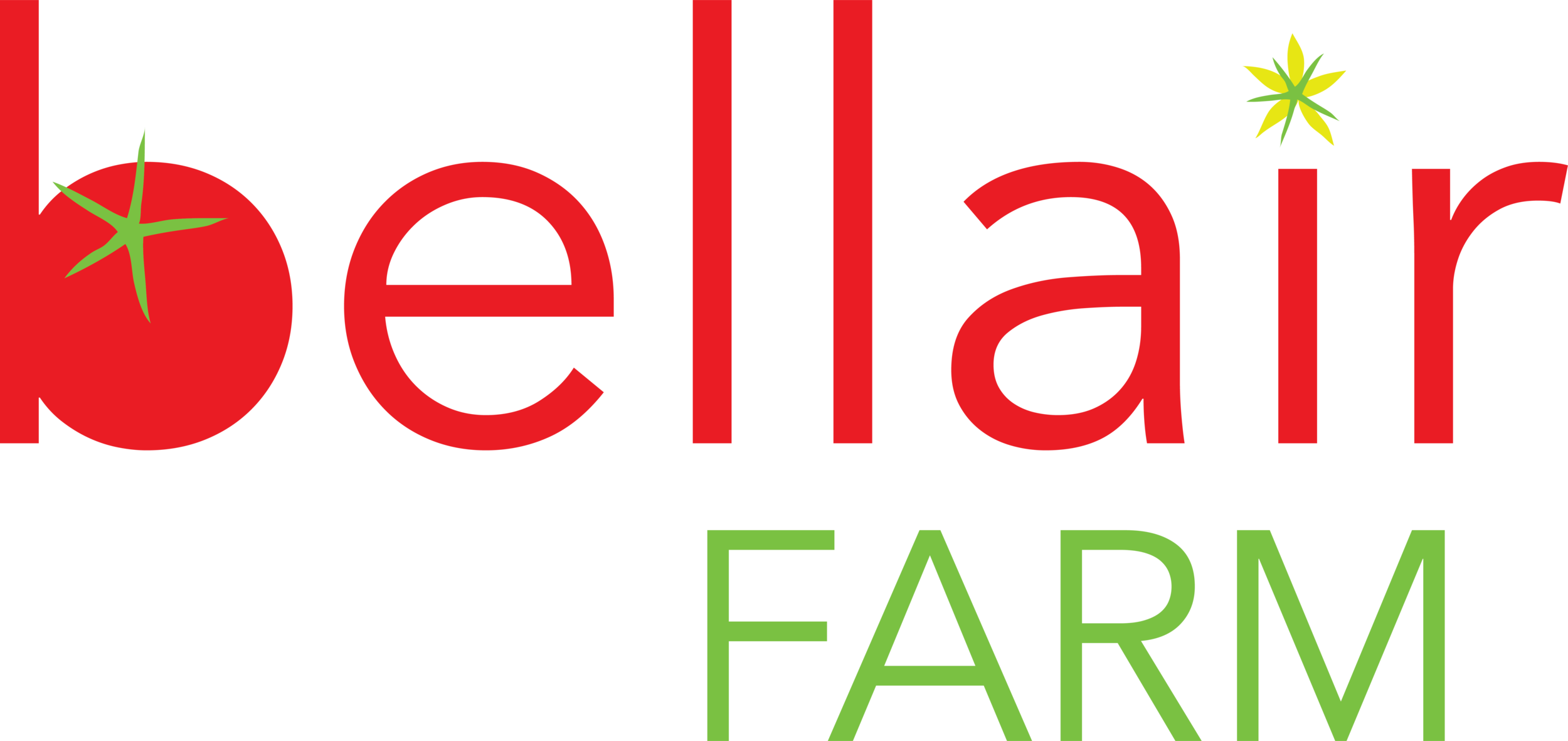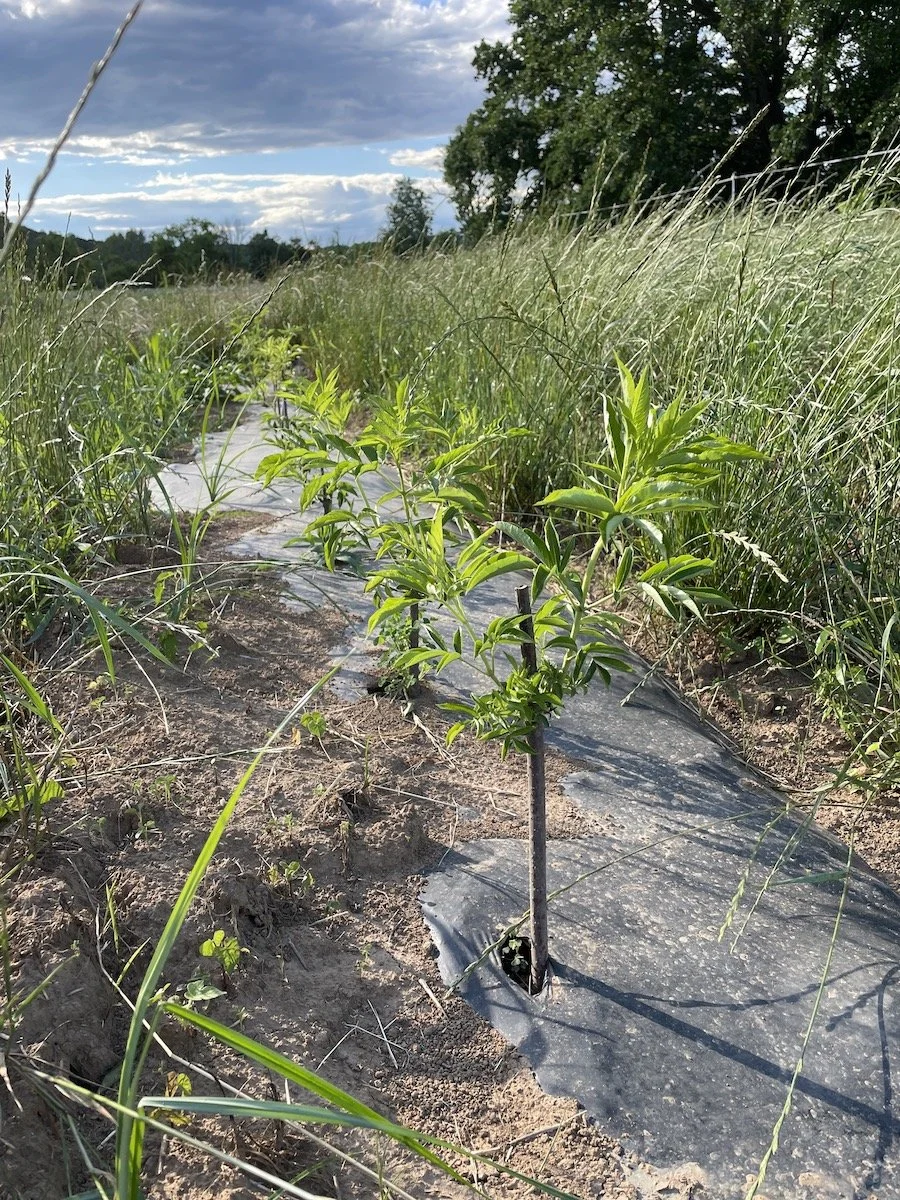Propogating American Elder Cuttings
Bellair farmer Nat just did a big prune on his elderberry plants, and has cuttings available now through the online store and in person.
American Elder, or Elderberry, is a native shrub that you often see growing wild along streams, marshes, moist forests, and disturbed areas. It grows well in different types of soil and spreads by root suckers. (It can take over a small garden if neglected, but can be pruned back hard, all the way to ground after the second growing season.) The flowers and berries are edible (though berries need to be cooked) and used for winemaking, jellies, syrups, pies, and herbal medicine.
Elder shrubs are a great addition to butterfly, edible, native, pollinator, or rain gardens. It can also be used as a hedge, in a woodland, or along streams and ponds. Wildlife enjoy the fruits and the shrubs provide habitat/shelter. It is effective erosion control in moist sites -- which is how Bellair has used the plants. Last year, Nat plantd a LOT of cuttings in low, wet areas and in buffer zones around the farm.
A small elder plant, just two months after being planted directly in the ground (May 2024)
Elder grows very well from cuttings, as you can see from the photos above. On the left, you can see cuttings stuck directly in the ground last March 22 (no prep, just right in the ground). It doesn't look like much, but on the right, just a month later on April 28, those cuttings were leafing out! Nat has two varieties available:
Bob Gordon - determinate variety; meaning it produces flowers and then fruits all at once. It has some of the largest berries and highest brix content of any American Elder variety. Because of this it has been favored for wine making. It has a slender upright growth habit.
Wyldewood - indeterminate variety; meaning it produces flowers and then fruits over a longer period of time. There will be harvestable berries next to flower clusters still developing. It is extremely vigorous and has a tall bushy nature. This varietal would be ideal for a privacy screen during the growing season. Wyldewood is reported to do a better job self pollinating in the absence of other varieties.
*Note, unless you have wild Elder growing nearby, you need at least two varieties to guarantee pollination.



